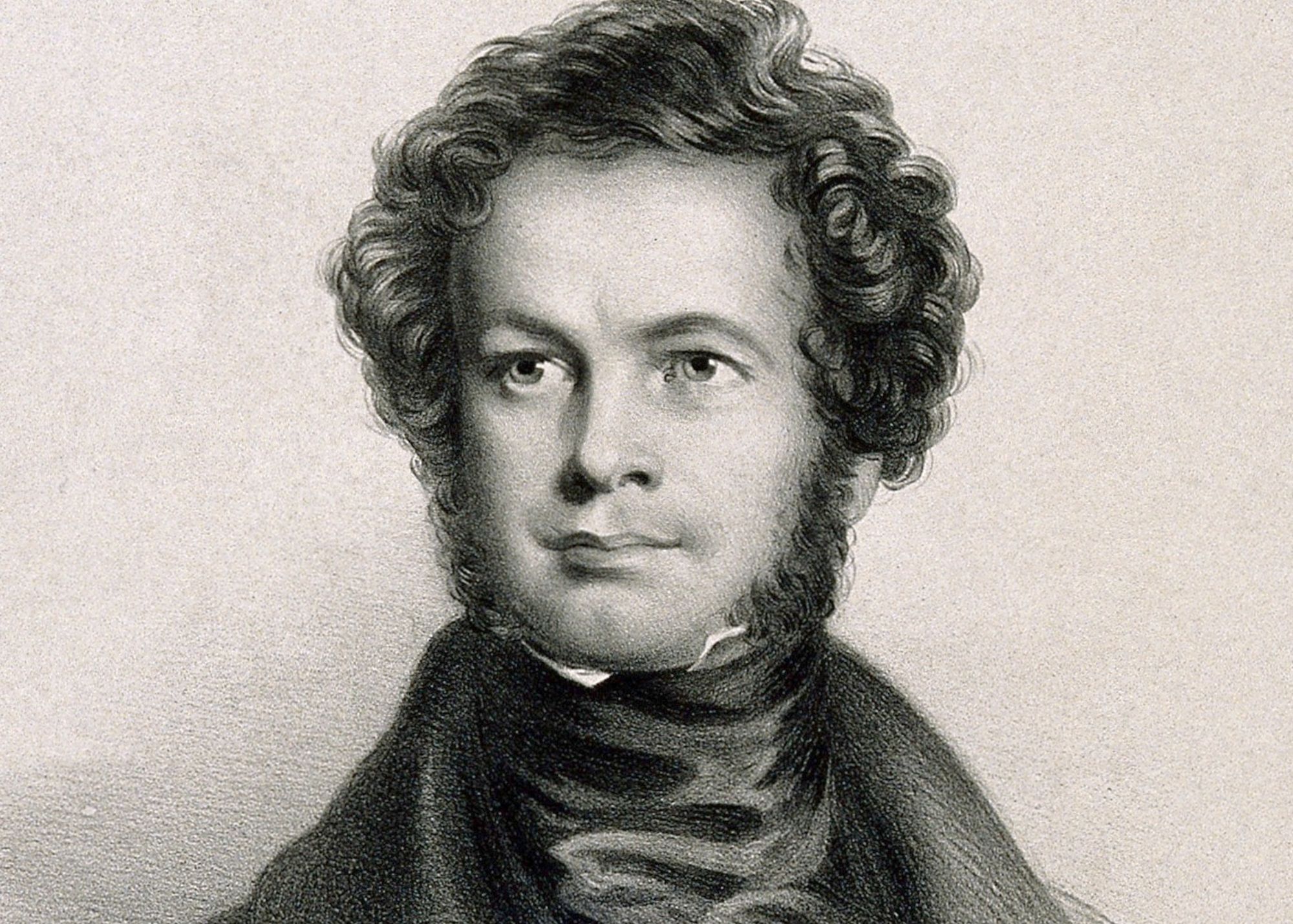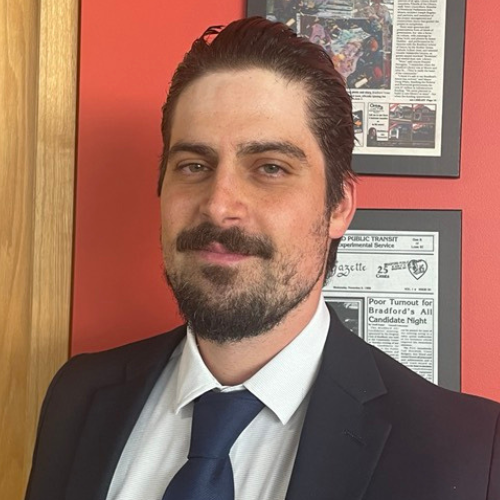Materia Wire Article

Published Date: 2024-10-25
Author: Raoul Oppenheim
Frederick Hervey Foster Quin is known as the first to bring homeopathy to England. His substantial achievements reflect his lifelong campaign to foster the medical system into all echelons of British society. As a youth, Quin had close familial ties to the Duchess of Devonshire, Elizabeth Cavendish. Regarded as her protégé by various accounts, Quin was consequently privy to higher societies in western Europe. Such ties awarded him with ample opportunities in education, and by his twenties he graduated as an M.D., writing his thesis on Arsenicum, or arsenic. He was soon after appointed as the physician to Napoleon I, who at the time was living out his final years in exile on St. Helen’s island. Napoleon would pass away before Quin could take up but a single appointment with the ex-empereur, after which he was appointed to prince Leopold of Saxe Coburg, later the King of the Belgians and Queen Victoria's favourite of uncles. It was during his time with Leopold that Quin was introduced to homeopathy. While witnessing a patient he was failing to cure gain full recovery after being treated by a homeopathic doctor, his interest in homeopathy took considerable hold. This significant occurrence marked the beginning of the next chapter for Quin's professional life, taking him as far as Koethen, Germany, where he would meet with Samuel Hahnemann, the founder of Homeopathy himself.
It was between the years of 1826 and 1832 that Quin would work to become a doctor of homeopathy. His determination towards learning the medical system led him to study the German language and translate many of Hahnemann’s works to English. In Paris, he even had the opportunity to study under Hahnemann for a year, and cemented the beginning of what would be a life-long correspondence with him. While on his studious endeavours abroad, he often traveled back to England, where he would introduce homeopathy to the land and set up his own homeopathic practice. By the time he established himself a doctor of homeopathy in the heart of London, he was treating patients solely using homeopathic doctrines. His success and undeniable sense of charisma, along with his general candor, had amassed him notable figures as part of his patient list; among them was the likes of Charles Dickens. Though Dickens was acquainted with many homeopaths in the course of his life, he made it clear when he named Quin the godfather of one of his sons that the relationship between the two was that of a greater kind. Alongside the ubiquitous enthusiasm surrounding homeopathy’s rise in London, the comforts of their friendship inspired numerous stories and characters found within the written worlds of Dickens. Dickens' satiric genius occupies the meetings at the Society for the Advancement of Everything in The Mudfog Papers, meetings that were undoubtedly inspired by real gatherings he attended that brimmed with talks of homeopathy and the advancement of healthcare in London. The same meetings were likely responsible for birthing the British Homoeopathic Society, an association of homeopaths founded by Quin in 1844.
It’s amusing to bear witness when smearers of homeopathy go so far as to pin The Mudfog Papers as an attempt by Dickens to jest at homeopathy, despite his notable efforts in advocating for the medical system throughout the entirety of his life. Is it not the wise men who are able to laugh at themselves?
In 1849 Quin went on to open the London Homoeopathic Hospital. After a supposed slow start, the hospital gained significant traction, and by 1854, when a cholera epidemic broke out in London, it stood as a beacon of hope for the city. The hospital had remarkable success in treating its cholera patients, with a mortality rate of 16% compared to 53% at the Middlesex Hospital nearby, which sported various allopathic treatments for the disease. The hospital held society meetings, classrooms for homeopathic medical education, and later even hosted conferences for practitioners from around the world. The likes of Robert Cooper, James Compton Burnett, Edward Bach, Richard Hughes and many more great names in British homeopathy would come to associate with the hospital.
Homeopathy’s growth brought with it great concern to the London College of Physicians. After deliberations, the college decided to send out a letter to Quin, specifying that his practicing of homeopathy is subject to certain penalties made clear by the body. It comes to no surprise that worry brewed throughout allopathic circles at the time, given that homeopathy’s advocates were men of intellect who held esteemed positions in both higher and lower branches of society and could influence change at a mere impression. No better say than that of Dr. Edward Hamilton, the publisher of Quin’s Memoir, can attest to the censors’ fear towards those that were championing homeopathy during that period.
Indeed, Homoeopathy has ever been fortunate in its pioneers. Look at Quin, at Gram, at Hering, at Grey, each of them a man who would exert influence in any sphere, in any calling, giving dignity to it, commanding respect in it, being fell always and everywhere. [3]
Though Quin cordially replied to the letter provided to him by the college, he would not hear from them on an official basis again. To insinuate that the college had any responsibility for the official report on the cholera epidemic to have any and all numbers brought forth by the London Homoeopathic Hospital completely omitted would be slander, unless of course it were true. These omitted numbers, relevant as they were, had only the chance to be disclosed to Parliament later on, through a thunderous speech provided by Lord Grosvenor, the Chairman of the Hospital board at the time. Whether in the name of jealousy or pride, blood continued to boil, and members of the college forever threw shade at Quin, evident during times where both parties would have reason to share a room.
Like the more recent J. Robert Oppenheimer - atom doses and all, Quin carried over an entirely new medical system to a country bereft of any promising alternatives otherwise. Despite skeptics and hungry competitors, Quin was able to leverage the atmosphere around him, finding excitement and hope in the circles he supported and ultimately saddled. Founder of the British Homoeopathic Society, now the Faculty of Homeopathy, and the London Homoeopathic Hospital, now the Royal London Hospital for Integrated Medicine, of which both have garnered rich histories and still stand operational today, Quin’s testament is as such that begs for the act of doing. His relentless advocacy for homeopathy radiates in his ability to do; to learn, to build, and to unite. And to those who stand atop a lonely hill can surely take wisdom from Frederick H. F. Quin’s recalling of his own efforts;
It is easier to imagine than describe the feelings which fill my breast on now looking around me, when I recall to mind that in 1827 I stood alone in England, the advocate of Hahnemann's doctrines and the only practitioner of his system of medicine, the sole champion of Homoeopathy. [3]
You are not alone, so carry on.
1. Bradford, Thomas L. Pioneers of Homeopathy. Frederick Hervey Foster Quin (1799-1878). Homeopathe International. http://www.homeoint.org/seror/biograph/quin.htm.
2. Dickens, Charles. The Mudfog papers etc. New York, J. W. Lovell Company, 1883.
3. Hamilton, Edward, 1824-1899. A Memoir of Frederick Hervey Foster Quin, M.D.. [S.l.: s.n.], 1879.
4. Hilary Jenkins, The history of the Royal London Homœopathic Hospital, British Homoeopathic journal, Volume 78, Issue 4,1989,Pages 198-203,ISSN 0007-0785, https://doi.org/10.1016/S0007-0785(89)80084-5 (https://www.sciencedirect.com/science/article/pii/S0007078589800845)
5. History of the Royal London Homoeopathic Hospital. Hpathy, 17 May, 2018. https://hpathy.com/homeopathy-papers/history-of-the-royal-london-homoeopathic-hospital-hospital/.
6. History of the Royal London Hospital for Integrated Medicine.University College London Hospitals.https://www.uclh.nhs.uk/our-services/our-hospitals/royal-london-hospital-integrated-medicine/history-royal-london-hospital-integrated-medicine
7. Smyth, Gary J. The Faculty of Homeopathy: Celebrating 175 Years of Excellence in Homeopathic Practice. The Faculty of Homeopathy: Special Editorial, 2019.
Image Source: Wellcome Collection 8033i
Note: The views expressed on Materia Wire do not exclusively represent the views of Homeopathic Healing Inc.

Raoul Oppenheim is a Senior Product Manager at Homeopathic Healing Inc. and a Senior Editor for...

Raoul Oppenheim is a Senior Product Manager at Homeopathic Healing Inc. and a Senior Editor for...
